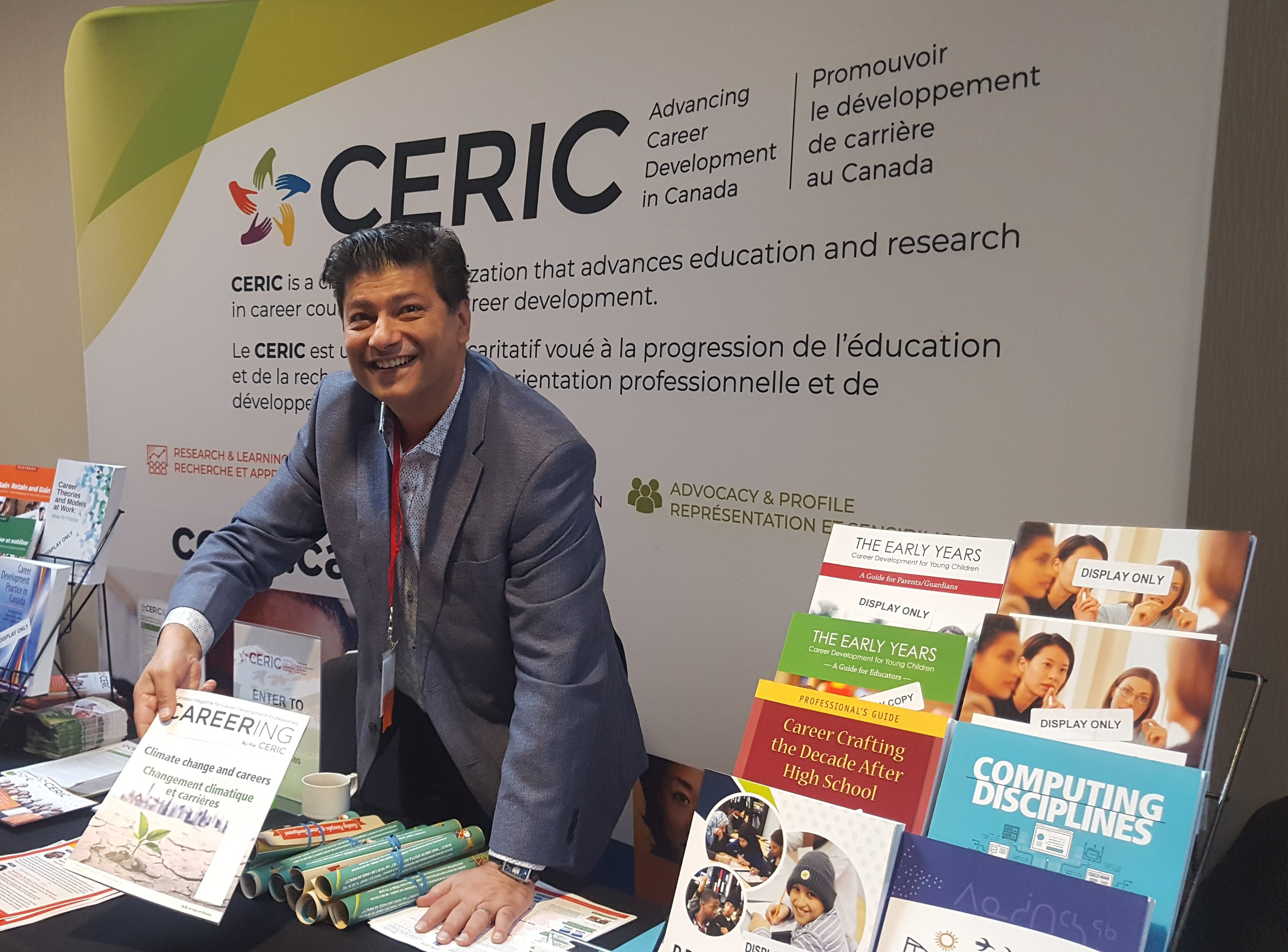
Editor’s note
January 31, 2023
The changing landscape of college career education
January 31, 2023Riz Ibrahim is the Executive Director of CERIC. He works with CERIC’s cross-sectoral Board and Advisory Committees to develop partnerships that enhance the body of knowledge for Canada’s career professional communities. Additionally, Ibrahim oversees all areas within CERIC’s mandate including the Cannexus National Career Development Conference, the CareerWise and OrientAction content websites and the peer-reviewed Canadian Journal of Career Development (CJCD).
Watch the full video interview with Counselling Foundation of Canada President Bruce Lawson or read an edited version of the interview transcript below.
In a sentence or two, describe why career development matters.
Career development matters because it touches all aspects of one’s life, aligning skills and work with values. It has the potential to create purpose and mattering, continuously changing through age and stage.
As a child, what did you want to be when you grew up?
I recall at some point wanting to be an astronaut. I don’t know if it was because I saw footage of the moon landing or an early interest in science fiction, but that belief and that desire held with me well into high school.
What was your first-ever job and what did you learn from it?
My first job was stocking shelves at a convenience store. I learned that I really liked working. I liked the fact that I was gradually given more opportunity, more responsibilities. While I liked the paycheck, I only wanted to buy a JVC boombox and to save enough money to buy my mother a freezer.
Who has had the most impact on your career and how?
I can’t imagine flourishing in my career without the continuous support of my family. They’re always there on the good career days and on the bad career days. Their support helps me to overcome any obstacles that get in the way and puts things in the right perspective.
What is something you’ve learned about career development that you wish you had known earlier in your career?
I think alignment of values to what you do is key. And I’d never really connected the dots early in my life. That was a key piece of enlightenment.
What do you think your 18-year-old self would think of your career today?
I think the 18-year-old me would be in disbelief. The work-life that I’ve ended up crafting is something that my younger self couldn’t have imagined. He always wanted to see a better world but didn’t necessarily know how to articulate that in terms of action. So, I think he’d also be thrilled.
What has being a parent taught you about career development?
If forever learning is part of career development, then with parenting it certainly started from day one. I’ve learned to respect and embrace the differences between my three daughters and recognize that they are continually changing. As a parent, I must look out for those signals of change, interpret these and support them as they navigate the complexities of the people they are becoming.
What is one of your favourite Cannexus memories?
The one that stands out for me is the very first Cannexus. CERIC was very young and we were really not known when we held the first Cannexus conference in Toronto. The fact that we were able to successfully deliver on that was amazing.
What do you consider CERIC’s greatest achievement?
Cannexus really is, to me, the main sort of big achievement. Coming from its humble beginnings and running 17 years later, it’s been amazing to see it becoming a gathering place for career professionals in the broadest sense.
How do you feel about taking the next step in your career, to become President of The Counselling Foundation of Canada?
I’m really excited by this opportunity. I’ve had the privilege of building out CERIC for all these years and I’m looking forward to making a broader impact. I feel like I’m coming to a place that has strong walls and a strong roof and open doors and windows.

